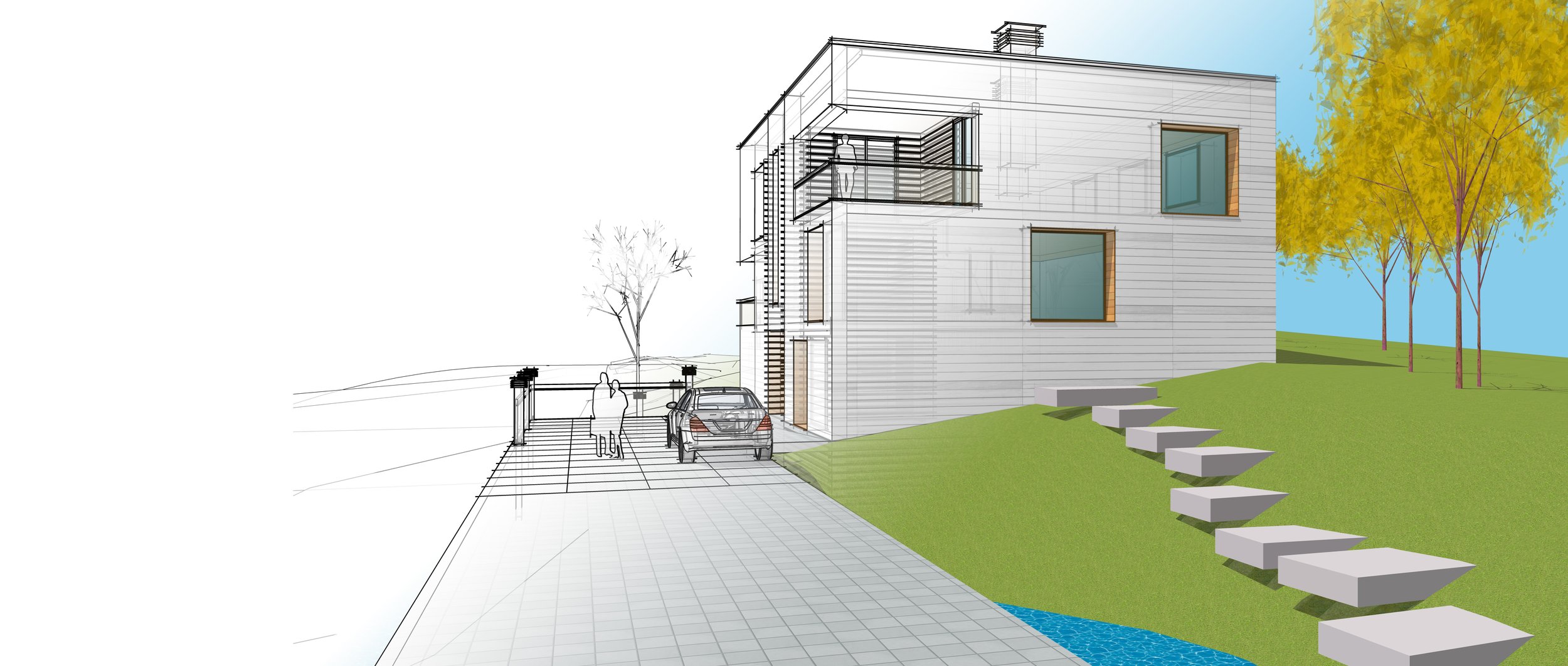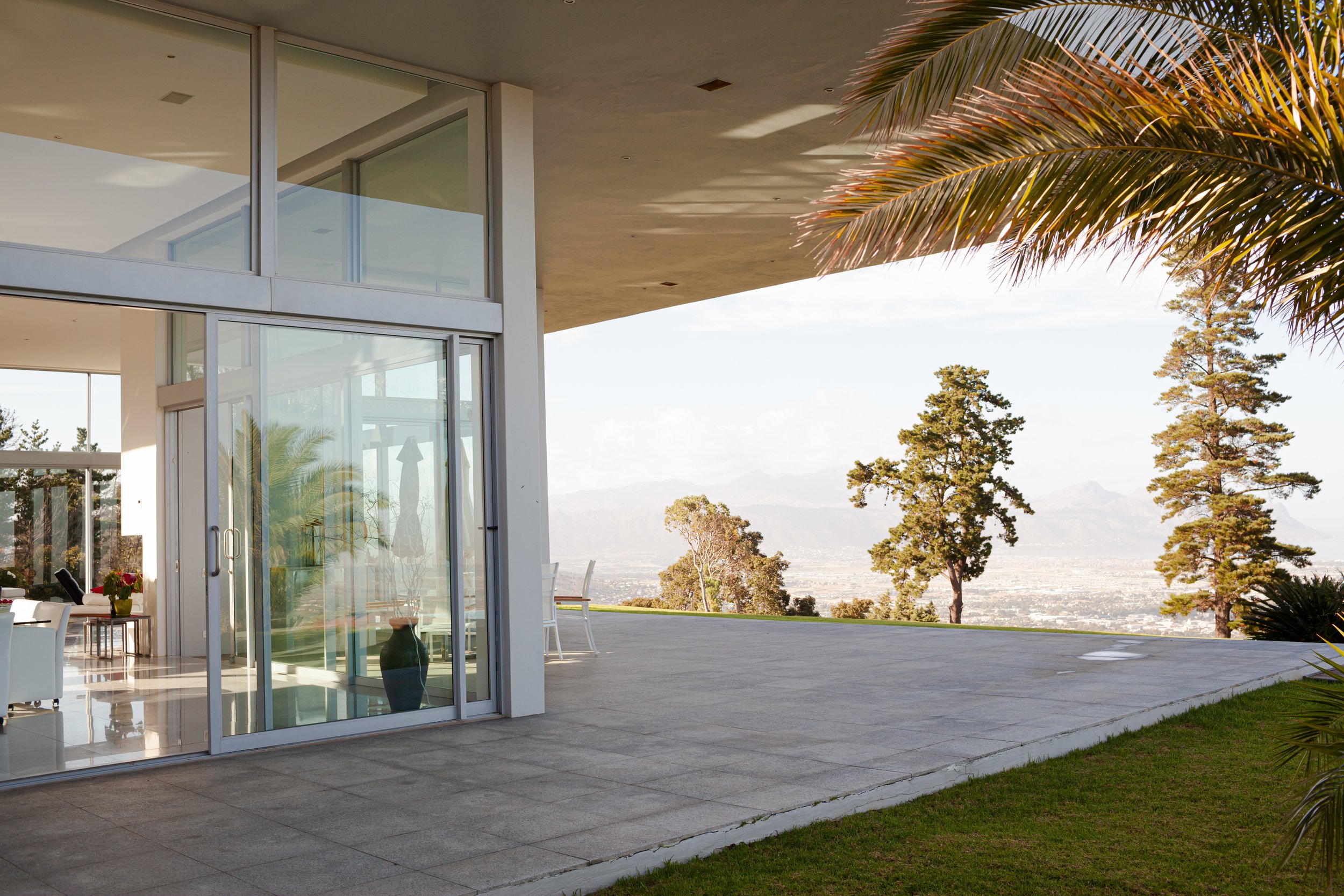How to Choose the Best Custom Home Builder for Your Needs
Choosing a custom home builder is a critically important decision as it will impact the quality of your outcome, finances through the project, and of course, your experience. At Buildable, we take pride in our business and have a vision for being the best home builder nationally. The challenge at times is that other builders view this process as just a job, and not having a quality and engaged builder will directly impact whether you enjoy the process.
Typically, Buildable works with our clients from land acquisition and through design because once you have stamped plans, there are fewer opportunities to value engineer or make impactful changes to the design. However, we often meet people who want us to build their homes and we’ve developed the following checklist for clients when choosing the right builder.
It's great to identify a builder to work with upfront and engage them throughout the process from start to finish. If you're looking for the best custom home builder, here's a list of things to consider:
Determine your budget and the type of home you want to build. This will help you narrow down your search for a builder who specializes in the type of home you want.
Research potential builders online. Check out their websites, social media profiles, and online reviews to get a sense of their reputation and the quality of their work.
Ask for referrals from family, friends, or colleagues who have built custom homes in the past. You can also ask for recommendations from local real estate agents and home builders' associations.
Look for a builder with a portfolio of work that matches your vision for your home. This will give you a sense of their design style, attention to detail, and ability to work with your unique needs.
Check the builder's credentials, such as licenses, insurance, and certifications. Make sure they are up-to-date and valid.
Interview potential builders to get a sense of their communication style, work process, and approach to problem-solving. Make sure they are willing to collaborate with you and are committed to delivering a high-quality product. Communication is so important given the longevity of the process, so you want to ensure you get along well with the potential builder.
Ask for references from previous clients and follow up with them to get an idea of their experience working with the builder. Ask about the quality of the work, timeliness, communication, and any issues that arose during the building process.
Check if the builder offers a warranty or after-sales service to ensure that any issues that arise after the completion of the project are addressed promptly and professionally.
Finally, make sure that the builder is someone you feel comfortable working with. Building a custom home is a significant investment and a long-term commitment, so it's important to work with someone who you trust and who understands your vision for your dream home.
Set up a meeting with Buildable to review your project and discuss if it’s a right fit here.
Custom Home Builder Comparison Table
The following is a comparison table that may help you as you research home builders. Buildable’s information is filled in the second column below.
Set up a meeting with Buildable to review your project and discuss if it’s a right fit here.
Questions to Ask a Prospective Custom Home Builder
The following are potential questions to ask a prospective custom home builder:
How many years of experience do you have building custom homes?
Can you provide references from past clients who have built custom homes with you?
Do you have a portfolio of work that showcases your design style and craftsmanship?
Do you have any licenses or certifications that demonstrate your qualifications and expertise as a builder?
What insurance coverage do you carry, and are you fully insured for liability and workers' compensation?
What is your process for building a custom home, and how do you involve the client in the design and construction?
How do you ensure quality control throughout the building process, and what is your timeline for completion?
Do you offer a warranty or after-sales service for your custom homes, and what is included in that service?
What is your communication style, and how will you keep me informed throughout the building process?
Can you provide a detailed estimate for the cost of building my custom home, including all expenses and fees, as well as a payment schedule?
The Process to Getting a Bid from a General Contractor for a Custom Home
Many people want to engage a builder early to “Get a bid.” The challenge is that you need your permits or “stamped plans” to get a bid with any accuracy. Before this point, the best a builder can do is provide you with a range of what to expect, making baseline assumptions for any details that aren’t defined or available. Bidding a job can take 6-8 weeks and countless hours from a general contractor as they reach out to 40+ subcontractors (foundation, framing, HVAC, plumbing, etc), and most don’t want to take on that process until there’s some commitment or even payment for this work. Far too many “tire kickers” are out there, and the best builders are very busy and can’t take on weeks of work without some agreement/contract. Additionally, the best builders value engineering the work to help you complete your vision more efficiently – and that work has value and is considered intellectual property.
We’ve created the following table to give context to owners on what to expect at each step of the process.
What to expect from Builders:
How to Spot a Bad or Problematic Custom Home Builder
Many people in the industry operate in a way that gives contractors a bad name. The truth is that you get what you pay for 100% of the time. Anyone who’s good at what they do knows the value they deliver, and it will come at a cost. Watch out for a “foot in the door” price from GCs, their bid will come in low, and then they will “change an order you to death” once contracted. Changes require change orders, but in some cases, it’s a strategy to get clients on the hook for a project. Ensure that you discuss all the details of your expectations, and the GC’s range accounts for that.
Here are some other warning signs that may indicate a bad custom home builder:
Violations: Check the GC’s license on the Contractors State License Board’s website. Be wary of any violations.
Lack of experience or qualifications: A custom home builder who lacks experience or the necessary qualifications may not have the knowledge or expertise required to build a quality home.
Poor communication: A custom home builder who is difficult to communicate with or fails to respond to your inquiries or concerns may not be a good fit for your project.
No references or portfolio of work: A custom home builder who cannot provide references or examples of their past work may not have a strong track record of successful projects.
Unwillingness to provide a detailed contract: A custom home builder who is hesitant to provide a detailed contract may be trying to hide additional costs or fees or may not be willing to commit to specific project details.
Pressure to sign a contract quickly: A custom home builder who pressures you to sign a contract quickly may not have your best interests in mind, and may be trying to rush the process to avoid scrutiny or accountability.
Lack of transparency or accountability: A custom home builder who is not transparent about their building process, materials, or fees may not be trustworthy, and may be prone to cutting corners or hiding costs.
Poor reviews or ratings: A custom home builder who has consistently poor reviews or ratings from past clients or industry organizations may not be a reliable or trustworthy choice.
It's important to thoroughly research and vet a custom home builder before hiring them to ensure that they have the necessary qualifications, experience, and reputation to build a high-quality home that meets your needs and expectations.
Buildable is Your One-Stop Shop for a Custom Home Build in San Diego
Building a home in San Diego takes an immense amount of time and effort, and can appear overwhelming to those who start the journey alone. However, building a home can be straightforward when you approach the process with experts by your side who can guide you through every step.
At Buildable, all of the people you need to have a stress-free home build will work with you to create the home of your dreams. Read about our team, talk to us, and get the answers to questions you may have about starting the custom home building process in San Diego.




